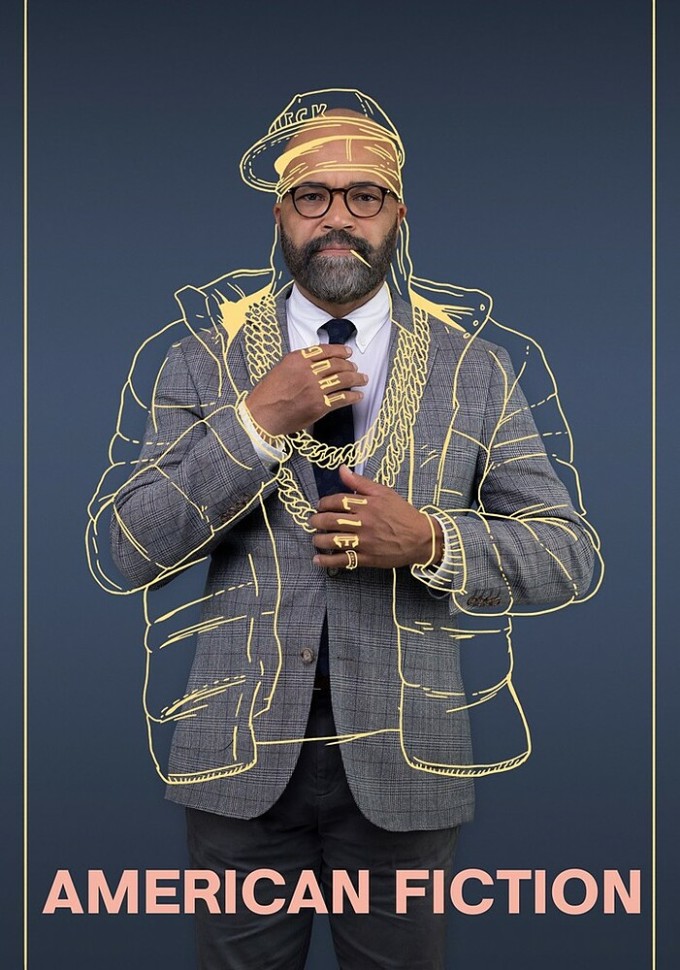Director Cord Jefferson depicts racism in the American creative industry with humor, in the 2024 Oscar Best Picture nominee "American Fiction".
* Movie spoilers
Trailer "American Fiction". The film received six nominations for the 2024 Oscars, including Best Picture, Best Director, Best Adapted Screenplay, Best Supporting Actor and Best Original Score. Video : MGM Studios
“I think we need to hear black voices right now,” a white jury member said during a debate over which work deserved the literary prize in American Fiction , Cord Jefferson’s debut film. Ironically, however, he and two other white judges had just dismissed the opinions of two black writers in the previous scene.
In the above scene, the director cleverly satirizes racial issues in a humorous way, while criticizing hypocrisy in the art world . This is also the theme the filmmaker wants to convey throughout the work.
American Fiction is based on the 2001 novel Erasure by Percival Everett. It tells the story of college professor and writer Thelonious Monk Ellison (Jeffrey Wright), who struggles to launch his first book, which publishers criticize for its "insufficient representation of people of color."
In frustration, Monk took on a pseudonym and sent his agent a manuscript about African-American literary clichés. The work, which was beyond Monk’s expectations, became a bestseller at the time and was offered a film adaptation. The author was caught up in the consequences of his actions.
The film depicts the life of a writer to show the consequences of commercialization of art. At school, Monk is unpopular with colleagues and students, and at home, worries about money and the cost of caring for his mother with Alzheimer's (memory loss) gradually sap his energy.

Poster of "American Fiction". In February, the film won the 2024 BAFTA for Adapted Screenplay. The film also won two awards for Best Screenplay and Best Actor for Jeffrey Wright at the Independent Spirit Awards. Photo: MGM Studios
When Monk saw the novel We's Lives in da Ghetto by author Sintara Golden (played by Issa Rae) - about black people living in the ghetto - become a hit, he was upset and imitated Golden's writing style for his new project. In the book, Monk describes the character as having black skin, a gangster, and always carrying a gun. After the novel became popular, Monk encountered a series of funny and sad situations, such as having to "transform" into author Stagg R. Leigh because he lied about being a wanted fugitive.
The Guardian commented that the film is interesting in turning silly dialogues into endless debates. According to the Guardian , in addition to the acting of the cast, what makes American Fiction worth watching is the way the filmmaker emphasizes dialogue, listening to the story from different perspectives, even words that others consider meaningless.
When the judges discussed how to read books to evaluate candidates, some suggested reading every page, others said reading only 100 pages to see the overall quality. One said: "The scoring is stupid anyway. Comparing works to award prizes is not subjective but absurd." The discussion only ended when Sintara Golden said that literary awards are an opportunity to highlight underrated books, giving authors a chance to develop their careers.
In addition to raising issues of racism, the film satirizes the American publishing industry, showing the pressure on artistic creators when faced with a pragmatic lifestyle. According to Variety , like Spike Lee's Bamboozled , American Fiction shows the dark side of the creative industry, when some black people want to create controversial products in the community to get the attention of white leaders.
Jefferson's storytelling shows respect for character, convincing even in moments without dialogue. In the scene where Monk attends a reading by Sintara Golden, he stares at Golden, pondering the clichés he's just heard, before being blocked from view by a white woman.
Empire commented that the scene was simple but made many viewers sympathize with the character's anxiety, when Monk feared being lost in the world. Through the image of the main character, director Jefferson described how people are suffocated by social prejudice, forced to follow the rules.

While being pressured by work, the character Monk Ellison (played by Jeffrey Wright) finds love. Photo: MGM Studios
The work also makes for some funny scenes, showing the level of detail that goes into the lives of writers, such as Monk's name tag at a poorly attended book festival being misspelled. Or when Monk wants to put his first book on the "Fiction" shelf at a bookstore, but the manager puts it in the "African American Studies" section. "These books have nothing to do with African American studies, they're just literature. The blackest thing on them is the ink," Monk explains.
In addition to the process of solving the troubles from the novel, the director inserted a slice of the Monk family, delving into the main character's crisis. At this point, the film's pace became slower than the opening scenes, while also giving more space for Jeffrey Wright to transform his acting.
From here, Monk is no longer the grumpy, grumpy character who becomes weak when having to hold the position of the pillar in the family. Wright and Tracee Ellis Ross (as Lisa, Monk's sister) bring natural harmony through words. In the scene where Lisa suddenly passes away, Wright portrays grief through her eyes and gestures.
Meanwhile, Sterling K. Brown plays Cliff, Monk's brother. Cliff divorced his wife after she caught him cheating with another man. Since then, the character has been using drugs and living a lavish lifestyle. After many events, Cliff feels unable to be true to himself, trying to moderate his true self to be accepted by society.

Actor Sterling K. Brown in "American Fiction". Photo: MGM Studios
The filmmakers also show the conflict between Monk and his brother by portraying Cliff as gay, confined to a house full of rules, and Monk as a version of his late father, living a carefree life, never asking questions of anyone. Roger Ebert 's Peyton Robinson said Brown gives a passionate performance as Monk's rebellious brother.
In an interview with Esquire , director Cord Jefferson said: "I wanted to show that a career can't stop when your personal life is in trouble and vice versa. Everything can happen at the same time and you have to face it."
Cinnamon
Source link




































































































Comment (0)